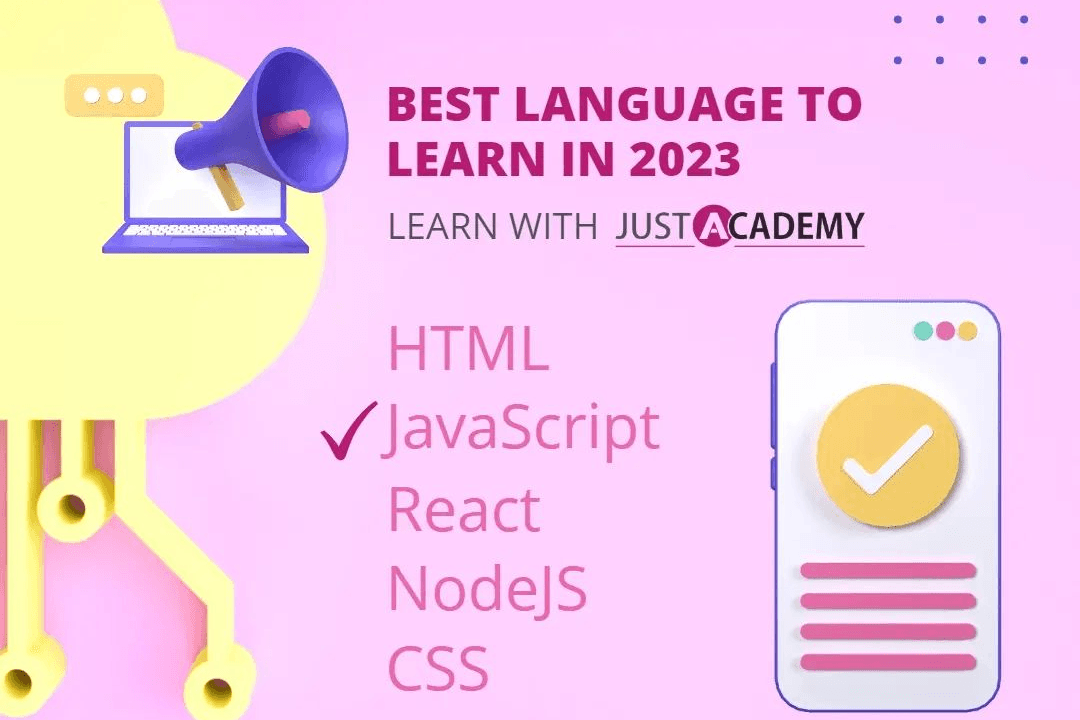How to Master JavaScript
Unlocking the Secrets of JavaScript Mastery
How to Master JavaScript
Mastering JavaScript is essential for anyone looking to become a proficient web developer. JavaScript is the programming language of the web, allowing you to create interactive and dynamic websites. By mastering JavaScript, you will have the ability to manipulate the elements of a webpage, handle user interactions, and enhance the overall user experience. With its widespread use in front-end and back-end development, a solid understanding of JavaScript opens up a world of opportunities to build modern web applications and advance your career in the field of technology.
To Download Our Brochure: https://www.justacademy.co/download-brochure-for-free
Message us for more information: +91 9987184296
1 - Start with the basics: Ensure that students have a solid understanding of fundamental concepts such as variables, data types, operators, and functions before moving on to more advanced topics.
2) Practice regularly: Encourage students to code and solve problems regularly to reinforce their understanding of JavaScript concepts.
3) Learn by doing: Hands on projects and coding exercises are essential for mastery. Encourage students to work on real world projects to apply their knowledge.
4) Understand the DOM: Knowledge of the Document Object Model (DOM) is crucial for working with web pages in JavaScript. Ensure students understand how to manipulate HTML elements using JavaScript.
5) Study ES6 features: Make sure students are familiar with modern JavaScript features introduced in ECMAScript 6 (ES6), such as arrow functions, template literals, and destructuring.
6) Explore frameworks and libraries: Introduce students to popular JavaScript frameworks and libraries like React, Angular, or Vue.js to understand how they simplify web development tasks.
7) Debugging skills: Teach students how to effectively debug JavaScript code using browser developer tools and tools like console.log().
8) Accessibility and best practices: Emphasize the importance of writing clean, readable code that follows best practices and adheres to web accessibility standards.
9) Asynchronous programming: Ensure students understand asynchronous programming concepts like callbacks, promises, and async/await for handling tasks like API calls and data fetching.
10) Test Driven Development: Introduce students to writing automated tests using frameworks like Jest or Mocha to ensure the reliability and robustness of their code.
11) Continuous learning: Encourage students to stay updated with the latest JavaScript trends, attend workshops, conferences, and online courses to deepen their knowledge.
12) Collaboration: Foster a collaborative learning environment where students can work on group projects, participate in code reviews, and learn from each other's experiences.
13) Code documentation: Teach students the importance of writing clear and concise code documentation to make their codebase more understandable and maintainable.
14) Code optimization: Guide students on optimizing JavaScript code for performance by minimizing resource usage, reducing load times, and improving user experience.
15) Project based learning: Lastly, provide students with opportunities to work on real world projects and build a portfolio to showcase their JavaScript skills to potential employers.
Browse our course links : https://www.justacademy.co/all-courses
To Join our FREE DEMO Session: Click Here
Contact Us for more info:
What Is The Difference Between Class And Interface In Java
Javascript Programming Interview Questions
Software Testing Courses Duration
Difference Between Java And Core Java
Difference Between Map And Hashmap In Java











